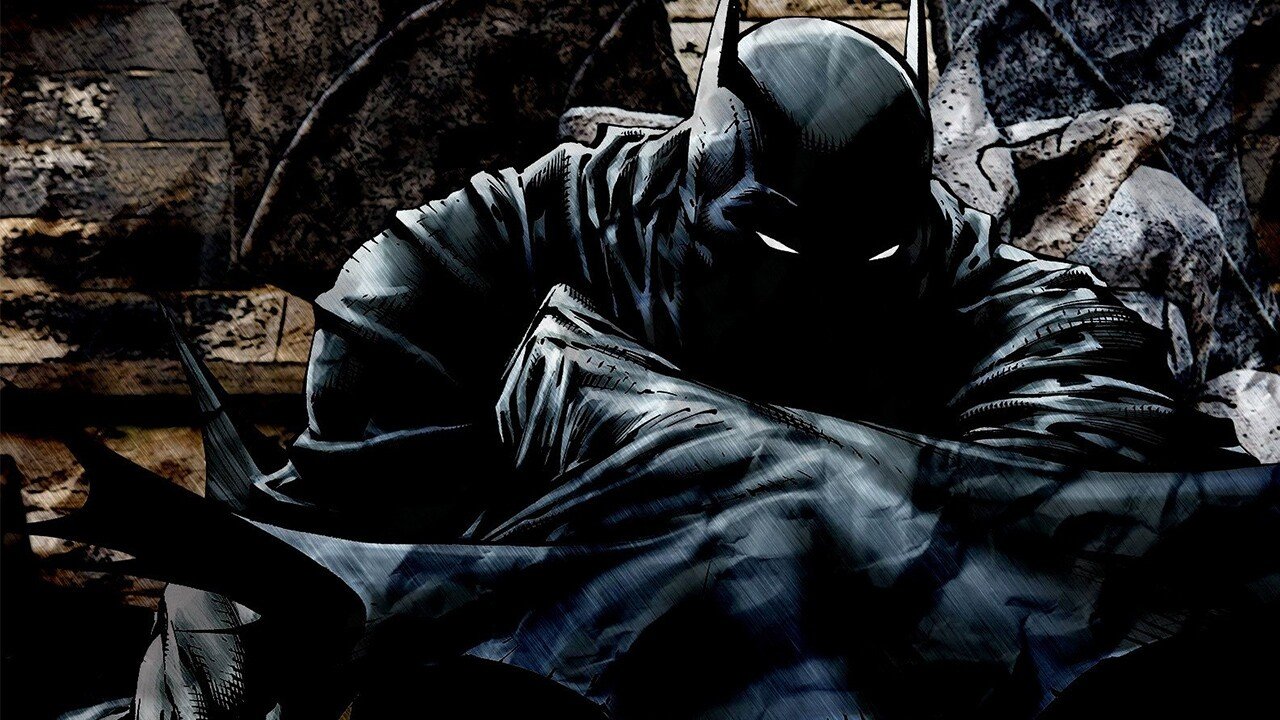Anyone who dresses up like a rodent and fights crime could be classified a neurotic mess.
Batman is a lot of things – but a shining beacon of mental stability, he isn’t.
“His interpersonal relationships are hopelessly screwed up,” says Donald Young, an assistant professor in the department of psychiatry at the University of Toronto. “That’s the bottom line, and that’s what can happen from an early parental loss.”
Young, who holds a PhD in clinical psychology from the University of Toronto, agreed to psychoanalyze Batman – no hourly fee or time on the couch required.
Clearly all of his findings are hypothetical. But they give lots of insight as to just how messed up the dark knight really is.
His parents
Young says it’s very likely Bruce Wayne could be enduring a lifetime of intense depression, stemming from the murder of his parents. They were gunned down in the street at an early age, and Wayne was forced to watch, helpless.
That’s usually seen as the catalyst for his transformation into Batman. But it goes much deeper than that.
“A loss like this could really stain someone’s personality with really strong depressive feelings,” Young says. “They won’t expect anything good to ever happen to them.”
“And maybe deep down, they don’t want anything good to happen to them, because they could feel guilty about the pleasure.”
In the end, he stays locked in a cycle of depressive feelings, unable to feel happy about anything. For that reason, Batman would never feel a sense of fulfillment, no matter what he did. It doesn’t matter how many people in Gotham he saves from muggers or rapists, or even how many times he defeats Darkseid. In the end, he stays locked in a cycle of depressive feelings, unable to feel happy about anything. The situation also smacks of classic case of survivor’s guilt, as Bruce Wayne would likely always wish he’d gone down in his parent’s place.
“He could feel so guilty that he would never be allowed to have pleasure, even when he triumphs over evil,” Young says. “He can’t be happy, he won’t let himself be happy – his conscience will always punish him.”
But strangely enough, his burning need to fight crime and help the innocent is actually one of the least likely scenarios to spin out of that kind of trauma. Young said Bruce Wayne becomes “super moral,” which is a much less common reaction than being deranged or angry.
“It’s not an uncommon reaction that when kids are subjected to that kind of violence, they grow up being violent … like a psychopath or sociopath,” he says. “Often times the person ends up terribly angry and will take advantage of others, rather than fighting crime.”
Which brings us to another familiar face.
The Joker
“The Joker is like the cleaved-off portion of Batman that he disavows,”Batman and the Joker have often been portrayed as two sides of the same coin – incredibly similar, created by tragedy, but their slight differences making them polar opposites. In a lot of situations, they’re the only people who can truly understand each other – how they think, how they work. Both are wrought with compulsions. Batman compulsively must be good, while the Joker must compulsively be evil. But on top of the compulsions, Young says the Joker also represents Batman’s narcissism, in that he’s actually a vessel for all the things Batman hates about himself.
“The Joker is like the cleaved-off portion of Batman that he disavows,” he says. “He identifies with it, because it’s part of him.” This idea is called “projective identification,” Young says. “You project the stuff you don’t like about yourself onto somebody else, and then form a relationship with them.”
So, instead of going around beating up yourself, you project what you see as the “bad part” of yourself onto somebody else and beat up on them. Not exactly healthy, but it does make sense. The Joker represents everything that Batman isn’t.
“But the important part is that you want them around to beat up on,” Young says. “So they become a very important relationship.”
In essence, Batman needs the Joker. He’s a vessel for all the things he can’t stand about himself, a kind of warped mirror image.
“You see that a lot with unstable people,” Young says. “They’ll take aspects of themselves they don’t like and attribute them to you. Then they form a relationship with that bad stuff – perhaps punishing you because you have their bad traits.”
This also cements Batman as a raging narcissist, because in a way, he’s forming a relationship with himself. But this isn’t the only situation like that in Bruce Wayne’s life.
Robin
When it comes to Robin, Young can’t help but stifle a few laughs. “The sidekick situation is curious in and of itself … for obvious reasons. Batman’s a guy that climbs up poles and lives with Robin. That would make any Freudian drool,” he says.
“The sidekick situation is curious in and of itself … for obvious reasons. Batman’s a guy that climbs up poles and lives with Robin. That would make any Freudian drool,”Jokes aside, Batman’s relationship with Robin is also kind of narcissistic. Robin is one of the few people who gets to see Wayne beyond the mask and knows him in any real capacity. Dick Grayson’s backstory is incredibly similar to Batman’s. He’s left an orphan when his parents are murdered right in front of him. So Wayne takes him in. That might be out of kindness, but it’s also because he can see much of himself in the boy – which is a little more twisted than it seems on the surface.
“It’s a strong identification with himself, the only person he can relate to,” Young says. “That makes him incredibly self centred – he can only extend his affection to a younger version of himself.”
A person growing and expanding his relationships beyond his parents is an important part of development. But in Wayne’s case, they were stolen from him far too early. So his progression has been halted, and he can only relate to people that remind him of himself. “Now he’s going to spend his whole life stuck in that stage, not taking the next step and being able to relate to women and people that are different from him,” Young says.
“His identification is so strong that he needs a child to relate to, because he is the parent. So he picks this young lad, which is again, him.”Taking Robin under his wing might also have something to do with his parent’s death. “To identify with his lost parents, he becomes a pillar of the community,” Young says. “His identification is so strong that he needs a child to relate to, because he is the parent. So he picks this young lad, which is again, him.”
Subsequent Robins don’t have the exact same backstory as Dick Grayson, but they still come with their own issues. Jason Todd ended up pretty sociopathic himself, and Bruce’s son Damien is hardly a well-adjusted child. If anything, Tim Drake was the most normal of the kids who suited up next to Batman.
Treatment
So what could help Bruce Wayne get past the deaths that haunt him? “Well, a very pedestrian answer would be medication,” Young laughs. Anti-depressants could alter the chemical processes that make him act the way he does. “As for traditional therapy, it would be a long-term psychoanalytic treatment, where hopefully the person can get it straight.”
But in Batman’s case, Young says therapy itself would likely not be enough. It would take an awful lot of talking it out to pull Bruce Wayne out the spiral of self-loathing and depression he feels. “It’s likely that he might feel better for a little while,” Young says. “But without some intense medication to go with the therapy, he’d likely sink back into his old habits.”
Knowing Bruce Wayne, neither the therapy nor medication would be an option. It’s also likely that he’d try to outwit any therapist that tried to help him. In fact, Young says he’d also probably project negative things about himself onto the therapist, much like he does with the Joker.
So for better or for worse, Batman is here to stay.
This bodes well for Gotham. But Bruce Wayne is still hurting – and likely will be for good.



